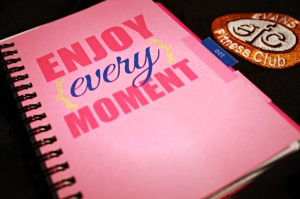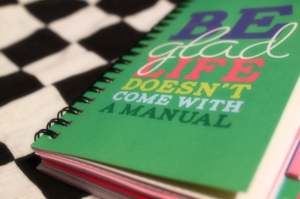 Guess what?
Guess what?
I found a job! I’ll be starting out as a fitness consultant and shadowing trainers during my shift. Once I’ve gotten enough clients as a consultant and established a reputation at the gym in general, I can transition over to personal training.
You might be wondering why I don’t just start out as a trainer. Simple: The trainers at the gym have to sell fitness packages themselves. Plus, they only make money when they’re training people; thus, it would be very difficult for me starting out. As a fitness consultant, I’ll receive a salary and commission for selling gym memberships. In the meantime I’ll be able to acquaint myself with the gym and practice spotting and giving out advice on proper exercise technique to the gym’s members. I can also give out advice on nutrition and all of that other fun stuff.
Now I did have another interview at a gym where I had to, on the spot, put together a short program for three different client scenarios. At this gym you can get clients yourself, but they also hand them to you.
One huge thing I learned from this mock interview is that no amount of studying can prepare you for what will happen out in the field. In fact, the head trainer I was creating the mock workouts for gave me a few anecdotal stories that hammered that point home. One example would be obese clients who can’t hold a plank for even five seconds because of the amount of their own weight they have to support. I definitely didn’t learn that from the books.
You might also be wondering why I don’t give this gym a chance. Well, I really want to. However, having an assured salary while being able to learn from someone else first will allow me to give my future clients the best possible experience. I’ll be able to learn what to do and what not to do before I even train my first client. I’ll feel much more confident being able to work with a variety of people. After all, the mock interview was the most nerve-wracking thing I have ever done in my life. Usually I can get over my nerves once I start something, like an author presentation; however, I couldn’t settle my nerves at all. There was just no way to prepare for this mock interview. So it was a great experience, one I learned so much from.
Before I even went to the interview, I looked up all sorts of tips on preparing for a mock  workout. There were hardly any! It was just people giving out non-specific advice, advice you can use for any interview, so here I am offering my own tips specifically for the mock workout portion.
workout. There were hardly any! It was just people giving out non-specific advice, advice you can use for any interview, so here I am offering my own tips specifically for the mock workout portion.
- Study up. I reviewed primarily special populations and illnesses and injuries. Whoever is interviewing you will likely throw you a special populations client or someone with an injury. I was given someone who had torn their ACL, stopped physical therapy, and was just content with mild knee pain. If you get someone like this, talk to your interviewer as if they were a real client. Refer them to a doctor or ask for exercise guidelines from their hypothetical doctor.
- Think fast. I know I definitely need to improve on thinking fast. Your interviewer will likely toss in a wrench during the workout, and you need to be able to respond to that. For example, my interviewer, during the middle of a workout, told me he wanted to get rid of the fat around his triceps. I had to explain to him that you can’t spot reduce, as the body takes fat from wherever it wants (it’d take it from my thighs first), but you can build up the muscle in that area to give it a more muscular appearance. This was a hypothetical client who needed to lose about 100 lbs., so I also had to explain how nutrition is going to make up the bulk of that weight loss.
- Plan ahead. Think of basic exercises that can be applied to any situation. If you have to do a full 30-minute session, think of a 5-minute warm-up you’d like to do. Do stretches of the muscles that were used during the cool-down. I chose squats, lunges, planks, the birddog (for the back), and basic weight-lifting moves, like shoulder presses, chest flies, biceps curls, triceps kickbacks. Keep the deadlift in mind since it’s great for building muscle and keeping the heart rate up. Also have alternative moves in mind since you may be faced with a hypothetical client that can’t do lunges, squats, ect.
- Practice. I don’t care if you have to talk to yourself in the mirror, your cat, a friend, or a significant other, think up a scenario and just practice talking to this hypothetical client. You may even be given a scenario before the mock workout that you can prepare for. I wasn’t. For example, if someone’s looking to lose a large amount of weight, practice talking about nutrition. Practice talking about how you can’t spot reduce fat. Just practice.
- Practice explaining. Choose your main moves and practice how you’d explain to a client how to do them. The mistake I made was being too specific with how to do a squat, even though my interviewer said I did a good job. I was just giving too much information before he even did a squat. So think of just a few things you’d tell a client, for example, on how to do a lunge. You can give specifics while you’re spotting.
- Be observant. Your interviewer is going to purposefully throw in mistakes. I was so nervous that sometimes I didn’t catch these mistakes until near the end of an exercise. Now I’m not saying that this is a screw-up. It’s important that you catch mistakes period, so I’m glad I caught them. Clients new to exercise aren’t going to perfect a move the first time they learn it, so expect there to be mistakes anyway. They’re also not going to know you caught it at the last minute because they don’t yet know when they are making mistakes! Even when you give a correction, they may not be able to immediately apply it.
- Ask questions. Once you’re given a client scenario, ask specific questions. Does this client also have postural problems? What is this client’s diet like? What is their activity history? Also, when you’re done with the mock workout and the interviewer asks if you have any questions, make sure you have them! Ask about their emergency procedures. Figure out the amount of clients they have on average. Ask about the average client. Asking questions like these will also likely give you an answer about how much you should expect to make without your actually having to ask about pay. Asking these questions also shows your interest in the job. So, yes, you do NEED to have questions prepared to ask.
- Call back. If the interviewer says they’ll give you a call, ask if you can call back, just in case. This also shows your interest in the job. Even if you don’t get it, you can at least ask for feedback on the mock workout. Your interviewer will likely give you permission. I can’t think of why they wouldn’t.
You probably are going to be nervous during the mock workout, but see it as fun. See it as an experience. It is fun, and it is an experience.

Congrats on your new job! I love your mixture of helpful tips and anecdotes explaining why these things are important! I was considering training as a personal trainer, but I think I need to learn a lot more before I even apply because all my knowledge is skating-based!
LikeLike
Luckily my knowledge of ballet has made it really easy to transition over to gym-type stuff, simply because ballet stresses good form and posture. It also makes it easier for me to be able to explain how to do certain movements, like the squat, simply because I incorporate all of the visual feedback my dance teachers have given me over the years–like imagining a string is pulling you up, up, up to have that solid posture.
Have you chosen a cert yet that you want to study through?
LikeLiked by 1 person
I didn’t know there were different ones (I’m in the UK)! I was very interested in the Fitness First program because it looks like there’s a lot of support and input to help trainees develop. I’ve taught ice skating before but it’s so different with posture etc and I only taught the beginner classes, so I don’t know if it would be transferable.
LikeLike
In the US we have different certs, like ACE, NASM, ACSM, NESTA, ISSA, and the like. It’s all self-directed. I think even someone in the UK might be able to study one of these, but just choose the program you think is best for you. If you can get a cert that requires hands-on experience, I’d go with that one. I wish the certs in the US required it, but most don’t, and even when they do offer a package where you have to be hands-on, it’s simply an option that isn’t required to be certified anyway. It’s just more money they can pull from you for that specific package.
LikeLiked by 1 person
The ones I’ve seen all require people to work in a gym, but it never occurred to me that they might not allow me to actually do any training rather than just observe… that’s a consideration. I need to do lots more research to check I’m choosing the best option but I’m really fired up about this now! 🙂
LikeLike
Awesome! I’m really glad I could help. You’ll definitely want to see if it’s more like an internship or simple job shadowing. Mine will just be job shadowing, but I honestly feel like that will be enough. Really, the reason why my boss suggested fitness consultant in the first place is so that I can learn sales tactics that can also be applied to selling personal training sessions. I don’t know how it works in the UK, but there the fitness industry is unfortunately not regulated. Many trainers are required to do their own selling.
LikeLiked by 1 person
Yeah I think here they’re classed as “self employed” but still have to meet targets at the gym they work for (that’s the impression I get). Thanks for all your advice!
LikeLike
Any time! If you have any questions, you can always e-mail me. You should find my address in the about the blog part or whatever I call it.
LikeLiked by 1 person